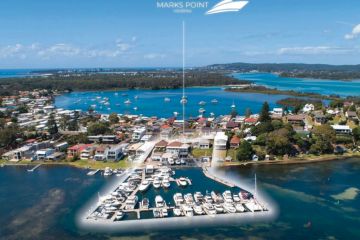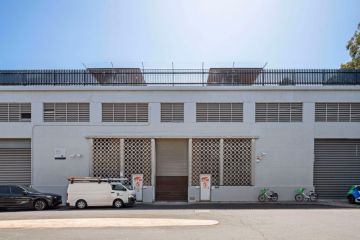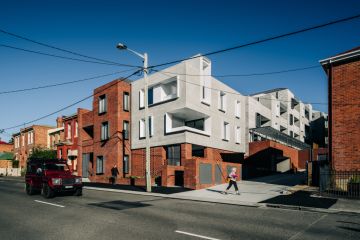ACT building cladding review continues, as NSW bans aluminium panels that caused deadly Grenfell fire
The ACT government is continuing its building cladding review after aluminium cladding that caused the deadly Grenfell Tower fire was banned in NSW.
Aluminium composite panels with a core of more than 30 per cent polyethylene were banned by NSW Fair Trading last week. However, a spokesperson from the Environment, Planning and Sustainable Development Directorate did not elaborate on whether the ACT government would follow.
“In the ACT, we already have strong processes with relation to the use of this material that other jurisdictions did not or do not have,” the spokesperson said.
“We will continue to use the strong processes we implemented in 2009-10 to assess the use of aluminium composite panelling on medium-high rise buildings in the Territory.”
There are exceptions to the NSW ban for products that pass stringent fire tests. Polyethylene is the world’s most common plastic and is a flammable material.
In the wake of the Grenfell Tower disaster, where more than 70 people were killed, the ACT government conducted an initial audit into all ACT government buildings that may have had combustible cladding fitted to them.
A Review Group, comprising of members from the EPSDD, the ACT Emergency Services Agency and Access Canberra was established.
- Related: ACT government to fund affordable-rental real estate model
- Related: Canberra’s apartment construction slowing: HIA Outlook
- Related: Does Canberra need a green roofs and walls policy?
The review is expected to extend to privately owned buildings in the ACT.
“Following the review of government buildings by Review Group, further work will consider privately owned properties that may be at risk of having cladding that does not meet requirements,” the spokesperson said.
“This further review includes ACT Fire & Rescue and Access Canberra staff examining building documentation and visually confirming that potentially combustible cladding is on the building.
“Once buildings are identified the Review Group will assess the risks and prioritise buildings for further inspection, if required.”
The spokesperson said it was important to note the review was not based solely on the material but the manner and the location it was fitted. So far, buildings have been found to pose only a low risk to occupants.
Master Builders ACT CEO Michael Hopkins said: “The MBA does not support a ban on polyethylene core aluminium composite panels.
“These products have a range of uses and can be manufactured in Australia as well as overseas. Banning products has wide-ranging consequences and is not needed when other solutions are already in place to ensure the quality and safety of our built environment.
“To adequately protect industry and consumers, effective enforcement of the law is needed.”
We recommend
We thought you might like
States
Capital Cities
Capital Cities - Rentals
Popular Areas
Allhomes
More







